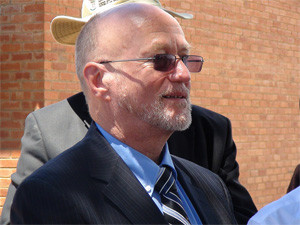
The Department of Science and Technology (DST) last week launched the Hydrogen SA (HySA) Infrastructure Centre of Competence (COC) at North West University, in Potchefstroom.
Co-hosted by the university and the Council for Scientific and Industrial Research, the COC is mandated to deliver technologies for renewable hydrogen production, storage and distribution.
According to a departmental statement, the key technologies pursued by the COC are among other things, hydrogen storage materials, hydrogen reticulation and delivery, systems integration for hydrogen production and delivery, and platinum group metals (PGMs) recycling.
The statement noted the technologies for hydrogen production, storage and distribution infrastructure need to be cost-effective and provide the best balance of safety, reliability, robustness, quality and functionality. The production of such technologies would prepare SA to become a significant supplier of material, components, products and subsystems for hydrogen-related applications.
Science and technology minister Derek Hanekom says the establishment of the centre is in line with the National Hydrogen and Fuel Cell Technologies Research, Development and Innovation Strategy that was adopted in 2008, and later branded HySA.
"One of the things that informed this strategy was the fact that SA possesses 75% of the world's reserves of PGMs, a significant proportion of which are found in the North-West," says Hanekom. He continued by saying the department envisions that the demand for PGMs will increase substantially given the blossoming "hydrogen economy" and the fact that PGM-based electro catalysts are an important component of most types of fuel cells.
"We have to develop our capacity to exploit this advantage intelligently," says Hanekom. "The HySA strategy deliberately strives to use local resources to create critical knowledge and human resource capacity, which will enable the development of high-value commercial activities in hydrogen and fuel cell technologies."
The centre is an addition to two other HySA COCs that are already operational - HySA Systems, hosted by the University of the Western Cape, and HySA Catalysis, co-hosted by the University of Cape Town and Mintek.
To sustain the momentum already set by the existing COCs, a number of strategic partnerships have been entered into, says Hanekom. "The DST is collaborating with the Department of Energy to include hydrogen and fuel cell technologies in the Integrated Resource Plan. My department is also collaborating with the Department of Trade and Industry to facilitate the deployment of fuel cells."
Further collaboration includes a memorandum of understanding signed with the Kurchatov Institute, a Russian research centre in hydrogen and fuel cell technologies, to work on electrolyser component development and specifically address challenges around electrolyser component durability.
Hanekom called on the private sector, especially the mining houses operating in the North-West, to come on board to assist with the development and deployment of fuel cell technologies.
Share